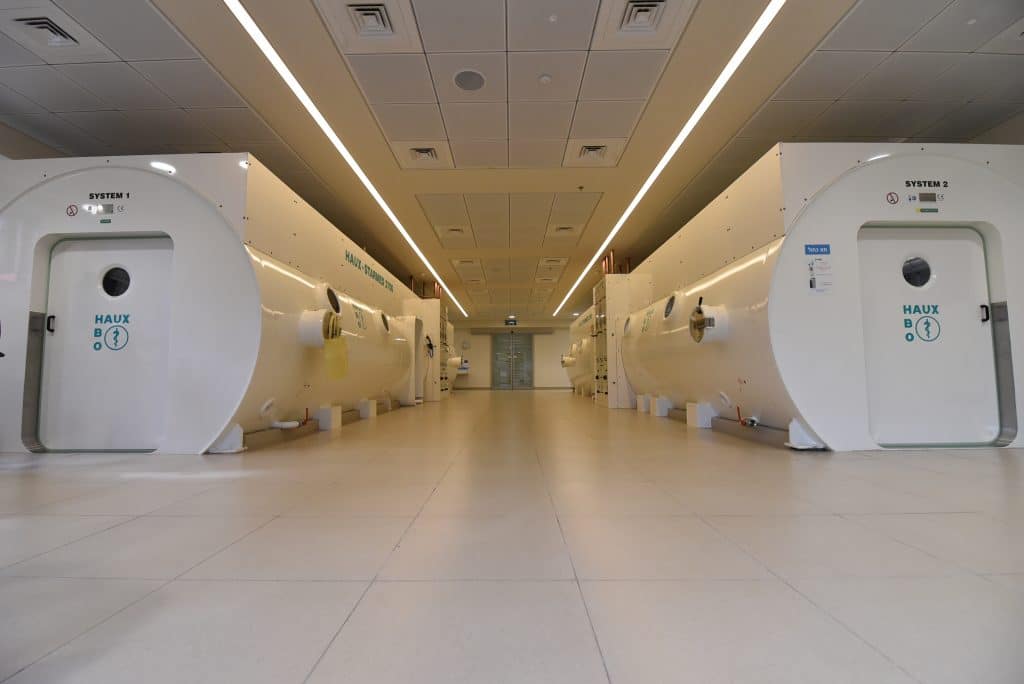
This 2013 article about an Israeli study showing that some brain damage can be reserved with oxygen therapy is one of NoCamels’ most searched articles. And it still generates significant traffic today. The study was led by Dr. Shai Efrati of Tel Aviv University’s Sackler Faculty of Medicine and was shown to restore a significant amount of neurological function in brain tissue otherwise thought to be chronically damaged – even years after the initial injury. Efrati’s theory was that high levels of oxygen might bring damaged neurons back to life.
In the study, post-stroke patients were treated with hyperbaric oxygen therapy (HBOT) — sessions in high-pressure chambers that contain oxygen-rich air — which increases oxygen levels in the body tenfold. After two months of treatment, the patients showed a significant increase in neural activity.
UPDATE: NoCamels caught up with Dr. Efrati this month to discuss his work six years later. Today, he’s the director of the Sagol Center for Hyperbaric Medicine and Research at the Yitzhak Shamir Medical Center (formerly Assaf Harofeh), one of the largest hyperbaric centers in the world.
Dr. Efrati has since been part of a number of studies, including one published in 2018 that looks at the effects of HBOT on the cognitive functions in post-traumatic brain injury patients. Here too, the study showed that HBOT was associated with significant cognitive improvements and increased activity in the relevant brain areas.
If the previous study showed that some patients regained certain abilities to walk, speak, move, the latest research showed significant measurable improvements in memory, attention, and executive function.
Read more here
